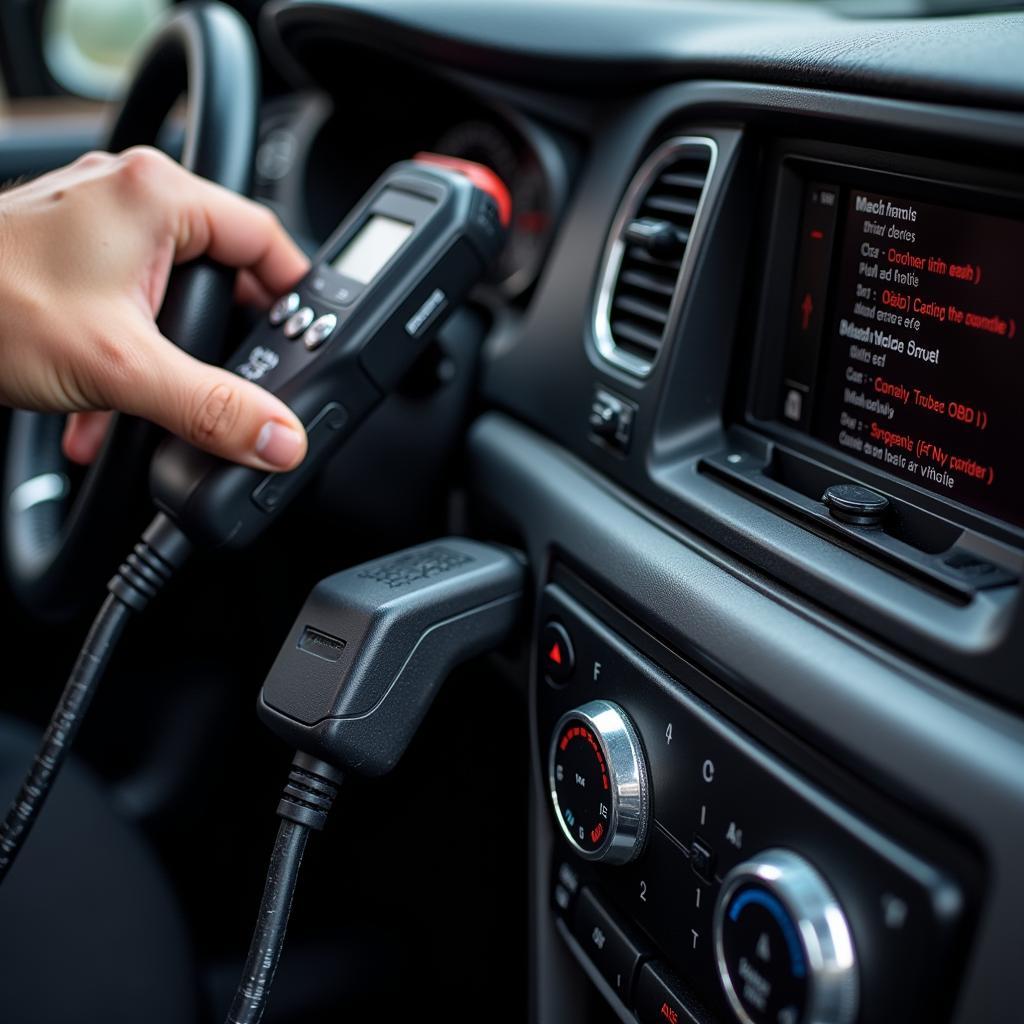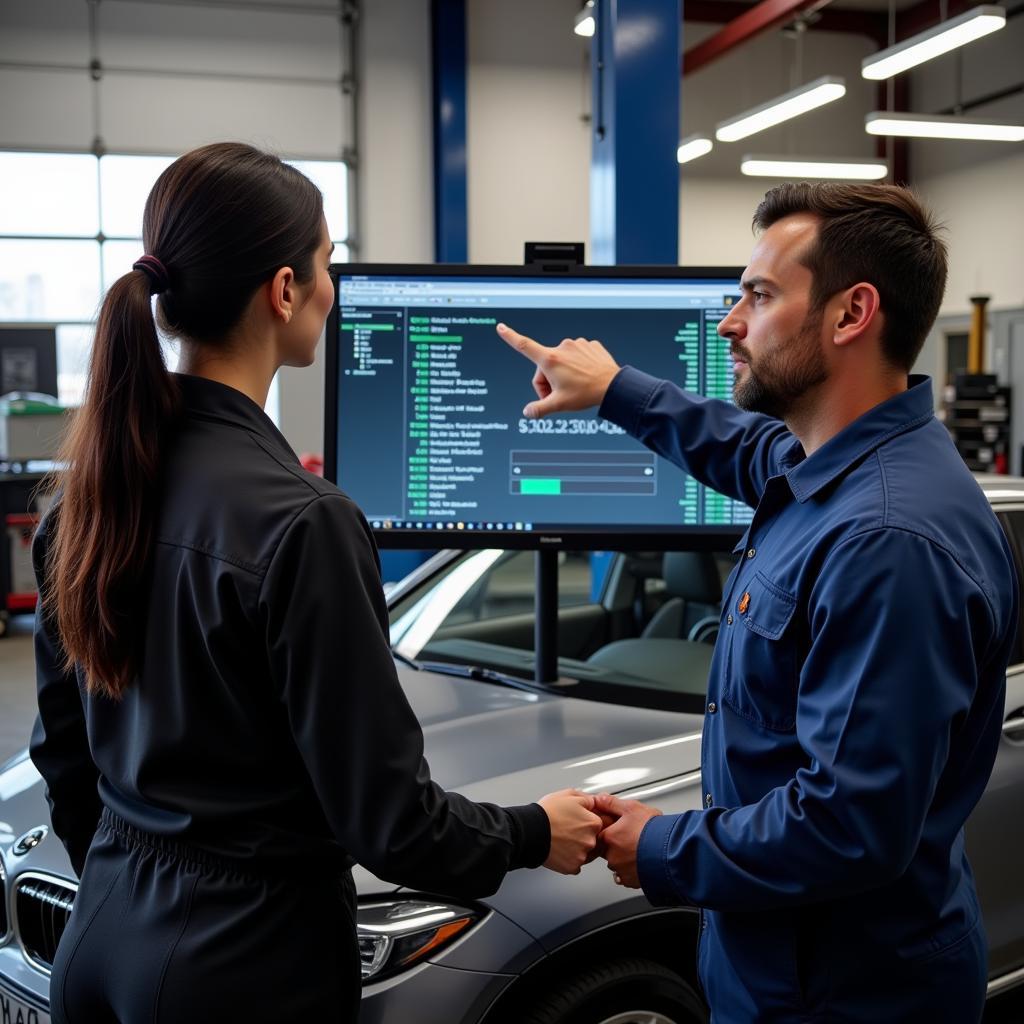Car Diagnostic Repair plays a vital role in modern vehicle maintenance. It involves using advanced technology to pinpoint issues affecting your car’s performance, ensuring it runs smoothly and safely.
What is Car Diagnostic Repair?
Car diagnostic repair utilizes a specialized tool called a diagnostic scanner, which connects to your vehicle’s onboard computer system. This system, also known as the Engine Control Unit (ECU), constantly monitors various sensors throughout your car, collecting data on engine performance, emissions, safety systems, and more.
When you experience car trouble, a mechanic uses the diagnostic scanner to read these stored codes. Each code corresponds to a specific issue, providing valuable insights into the problem’s nature and location.
 Mechanic using a car diagnostic scanner
Mechanic using a car diagnostic scanner
The Importance of Car Diagnostic Repair
In the past, diagnosing car problems often involved a lengthy process of visual inspection and manual testing. Car diagnostic repair offers a significantly more efficient and accurate approach. Here’s why it’s crucial:
- Accurate Diagnosis: Pinpoints the exact issue, eliminating guesswork and unnecessary repairs.
- Time-Saving: Quickly identifies problems, reducing labor time and costs.
- Cost-Effective: Prevents unnecessary part replacements by targeting the root cause of the issue.
- Improved Safety: Detects issues in safety systems, such as airbags or anti-lock brakes, ensuring optimal vehicle safety.
- Preventative Maintenance: Helps identify minor problems before they escalate into major repairs.
Common Issues Diagnosed through Car Diagnostic Repair
A wide range of car problems can be identified through car diagnostic repairs:
- Engine Problems: Misfires, poor fuel economy, reduced engine power.
- Transmission Issues: Slipping gears, rough shifting, transmission fluid leaks.
- Brake System Malfunctions: ABS problems, brake light issues, uneven braking.
- Electrical System Faults: Battery problems, faulty sensors, wiring issues.
- Emissions Control Problems: Issues with the catalytic converter, oxygen sensors, or evaporative emissions system.
What to Expect During a Car Diagnostic Repair
- Connecting the Scanner: The mechanic will connect the diagnostic scanner to your car’s OBD-II port.
- Reading the Codes: The scanner retrieves and displays the diagnostic trouble codes stored in the ECU.
- Interpreting the Codes: The mechanic uses their expertise and resources to understand the meaning of each code.
- Further Inspection: Additional tests might be necessary to confirm the diagnosis and assess the extent of the issue.
- Repair Recommendations: The mechanic explains the problem, proposes repair solutions, and discusses the associated costs.
 Mechanic explaining car diagnostic results to a vehicle owner
Mechanic explaining car diagnostic results to a vehicle owner
DIY vs. Professional Car Diagnostic Repair
While affordable diagnostic kits for cars are available for purchase, seeking professional car diagnostic repair is generally recommended. Professional mechanics possess the necessary expertise, specialized tools, and access to comprehensive databases to interpret codes accurately and recommend appropriate repairs.
Car Diagnostic Repair: Essential for Modern Vehicle Ownership
Car diagnostic repair has become an indispensable part of modern vehicle maintenance. Its ability to quickly and accurately identify problems saves time, reduces costs, and enhances vehicle safety. Whether you’re experiencing car trouble or want to stay ahead of potential issues, seeking professional mobile car diagnostic yorkshire ensures your vehicle receives the best possible care.

Leave a Reply